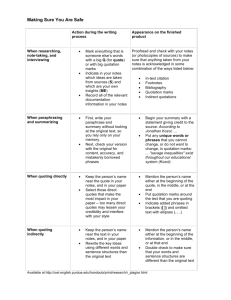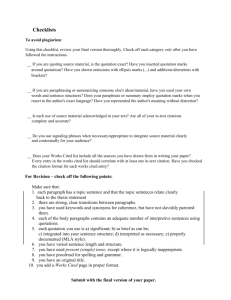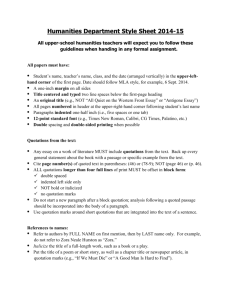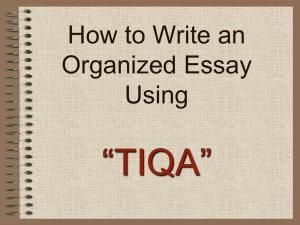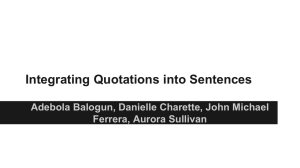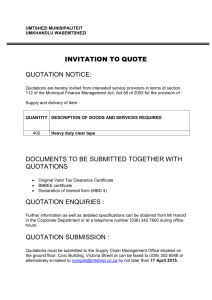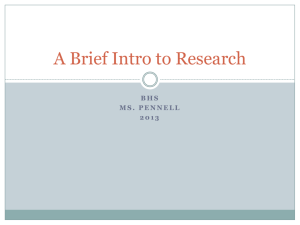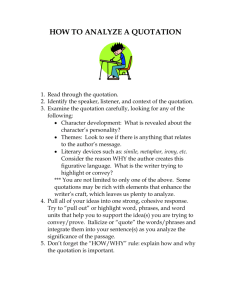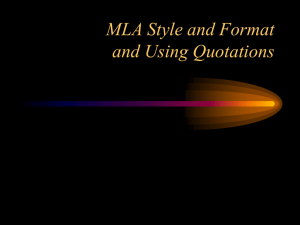MLA Sources
advertisement
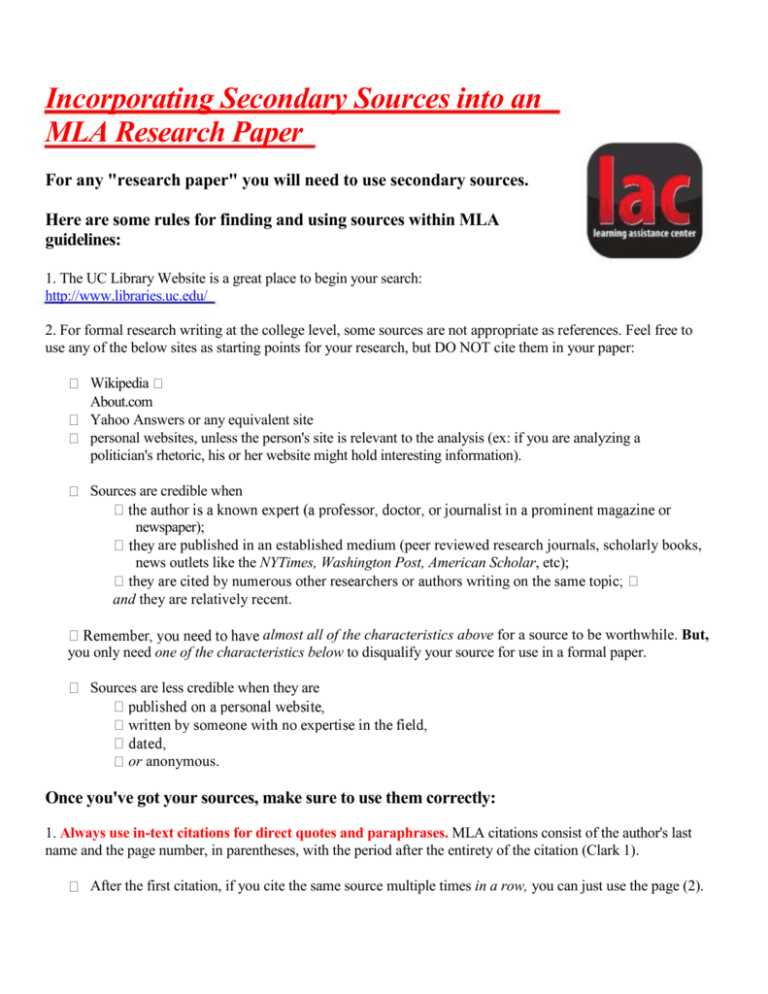
Incorporating Secondary Sources into an MLA Research Paper For any "research paper" you will need to use secondary sources. Here are some rules for finding and using sources within MLA guidelines: 1. The UC Library Website is a great place to begin your search: http://www.libraries.uc.edu/ 2. For formal research writing at the college level, some sources are not appropriate as references. Feel free to use any of the below sites as starting points for your research, but DO NOT cite them in your paper: Wikipedia About.com Yahoo Answers or any equivalent site personal websites, unless the person's site is relevant to the analysis (ex: if you are analyzing a politician's rhetoric, his or her website might hold interesting information). Sources are credible when newspaper); are published in an established medium (peer reviewed research journals, scholarly books, news outlets like the NYTimes, Washington Post, American Scholar, etc); and they are relatively recent. almost all of the characteristics above for a source to be worthwhile. But, you only need one of the characteristics below to disqualify your source for use in a formal paper. Sources are less credible when they are or anonymous. Once you've got your sources, make sure to use them correctly: 1. Always use in-text citations for direct quotes and paraphrases. MLA citations consist of the author's last name and the page number, in parentheses, with the period after the entirety of the citation (Clark 1). After the first citation, if you cite the same source multiple times in a row, you can just use the page (2). 2. When incorporating quotations into your own sentence, punctuate correctly! Quotations cannot be a standalone sentence in your paper. "Don't do this, for example." Instead, quotations must become a part of one of your sentences. Here's some advice for doing so correctly. Commas at the end of a quotation go inside the quotation marks. Commas that introduce a quotation are placed before the quotation marks. ," my teacher said, "your paper will receive an F." If you're ending a sentence with a quote, without parenthetical citation, the period goes inside the quotation marks. never listen." If your sentence is a question, but the quotation is a statement, then place the question mark outside the quotation marks. this "the great American Dream that everyone desires"? If the quote itself is a question, but your sentence is a statement, keep the question mark inside the quotes. ?" Question marks also go in the quotation marks if both your sentence and the quotation are questions. In general, semi-colons and colons go outside of the quotation marks. ; Ex: As Susan began to write her paper, she cried, "There are so many rules for punctuation" however, her fear resided once she found the Learning Assistance Center's helpful guidelines. 3. In addition to good punctuation, you need to provide context for your quotations. Always introduce the author of a quote. Use phrases like, John Smith argues that, or According to Harriet Myers etc. If you are paraphrasing an argument, you must let the reader know that it's a paraphrase by using an introductory phrase. 4. When you first introduce an article/book/essay that you will quote, give your audience some context. If you did your initial research correctly, you resources will have credible authors with well-substantiated arguments. Because these authors provide credible evidence for your argument, tell your reader who wrote the text, the text's title, and when or where it was published. If you find credible sources, but don't take the time to highlight the author and his/her expertise, you lose a key moment to appeal to that author's ethos of expertise (and thus build your own ethos of expertise). 6. Quotes are helpful and necessary, but only if you choose quotes that show something important. Do not just quote anything; quotes should have something specific that can best be communicated only through direct access to the speaker's words. In other words, if the author says something better than you ever could, or if the progression of their argument or their specific word choice makes their point, then you should quote. If you're simply seeking to add a quotation or bulk up your paper, don't quote. Additional Support: If you need further assistance with this or any other writing issue, visit the Academic Writing Center. More information can be found at our website: uc.edu/awc.
